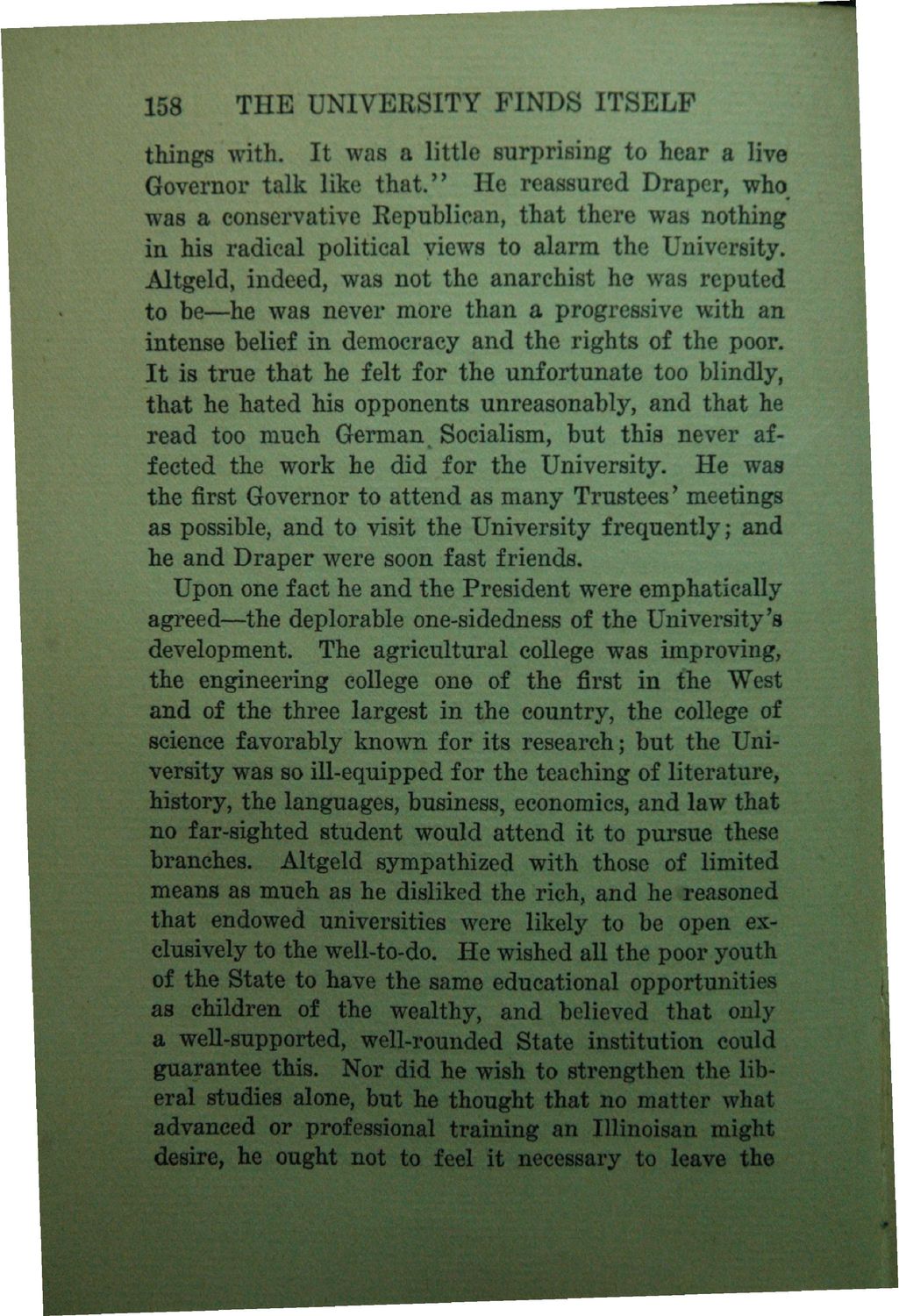| |
| |
Caption: Book - History of the University (Nevins)
This is a reduced-resolution page image for fast online browsing.

EXTRACTED TEXT FROM PAGE:
158 THE UNIVERSITY FINDS ITSELF things with. I t was a little surprising to hear a live Governor talk like that." He reassured Draper, who was a conservative Republican, that there was nothing in his radical political views to alarm the University. Altgeld, indeed, was not the anarchist he was reputed to be—he was never more than a progressive with an intense belief in democracy and the rights of the poor. I t is true that he felt for the unfortunate too blindly, that he hated his opponents unreasonably, and that he read too much Germant Socialism, but this never affected the work he did for the University. He was the first Governor to attend as many Trustees' meetings as possible, and to visit the University frequently; and he and Draper were soon fast friends. Upon one fact he and the President were emphatically agreed—the deplorable one-sidedness of the University's development. The agricultural college was improving, the engineering college one of the first in fhe West and of the three largest in the country, the college of science favorably known for its research; but the University was so ill-equipped for the teaching of literature, history, the languages, business, economics, and law that no far-sighted student would attend it to pursue these branches. Altgeld sympathized with those of limited means as much as he disliked the rich, and he reasoned that endowed universities were likely to be open exclusively to the well-to-do. He wished all the poor youth of the State to have the same educational opportunities as children of the wealthy, and believed that only a well-supported, well-rounded State institution could guarantee this. Nor did he wish to strengthen the liberal studies alone, but he thought that no matter what advanced or professional training an Illinoisan might desire, he ought not to feel it necessary to leave the
| |